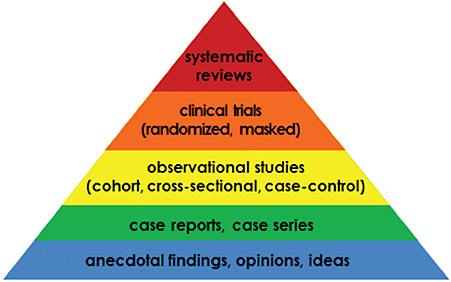In the US, medication abortion is typically a two-step procedure, first involving taking mifepristone, and within two days or so, taking misoprostol. On its face, SB 1318 seems intended to inform people that if they change their mind during that window between the two medications, an evidence-based medical procedure is available to help "reverse" the effects of the mifepristone (spoiler: the bill doesn't actually accomplish this goal).
People should have evidence-based information about all of their reproductive options, so they can make the best choice for their own individual circumstances. Even though the proportion of women who wish to terminate a pregnancy and then change their mind after taking mifepristone is likely to be small, any such person should absolutely be made aware of any scientifically proven intervention that can help them safely achieve their reproductive goals. So, is there scientific evidence for abortion reversal?
What's the evidence for "abortion reversal"?
Since this manuscript is in a peer-reviewed journal, and since it suggests that about 2/3rds of these women delivered healthy babies, does that mean this so-called "abortion reversal" procedure is evidence-based?
Hierarchy of scientific evidence
Moving higher up, observational studies do include a comparison/unexposed group, but for reasons I won't go into here, it isn't always clear whether that comparison group is similar enough to the 'exposed' group to confidently determine cause and effect. Randomized studies aim to ensure better comparability between groups, helping us draw more confident conclusions. Systematic reviews (which sometimes also include a statistical meta-analysis) are super-duper awesome: they consider all studies on an issue, putting the entirety of evidence into better perspective (because sometimes individual studies can have spurious findings).
Ok, so, what's that mean for the Delgado paper and SB1318?
A recent prospective study in France followed women given mifepristone for abortion and who subsequently changed their minds before receiving a prostaglandin. These women did not receive “abortion reversal” progesterone. Among the 46 women exposed to mifepristone at a mean of nine weeks’ gestation, 37 (80 percent) had a live birth. Only 17 percent had a miscarriage, and one chose an induced abortion when Down syndrome was diagnosed in her fetus. Thus, the continuation rate in France without progesterone treatment was similar to that in the Delgado and Davenport article with progesterone treatment.
FOR SHAME, Arizona. For shame.
Women seeking care should not be treated like lab rats with recommendations for evidence-free interventions.
Your moment of zen
So, scientists, make your voice heard. We owe it to people seeking information that will allow them to safely and effectively reach their reproductive goals, whatever they may be.
I've tweeted on this once,@cbpolis & that was to Dr @LeahNTorres. I have now reconsidered including info on it on our website at this time.
— Tiana Sakr (@AussieProLife) April 1, 2015
Fabulous, @AussieProLife. I consider your reconsideration of this issue a victory for science and evidence-based medicine. @LeahNTorres
— Chelsea Polis, PhD (@cbpolis) April 1, 2015
* Women are not the only individuals who may require abortion services; transgender men and other gender non-conforming individuals with an ability to get pregnant may also require abortion services.
Main reference:
Delgado G, Davenport ML. Progesterone Use to Reverse the Effects of Mifepristone. The Annals of Pharmacotherapy 2012;46(12):e36.


 RSS Feed
RSS Feed